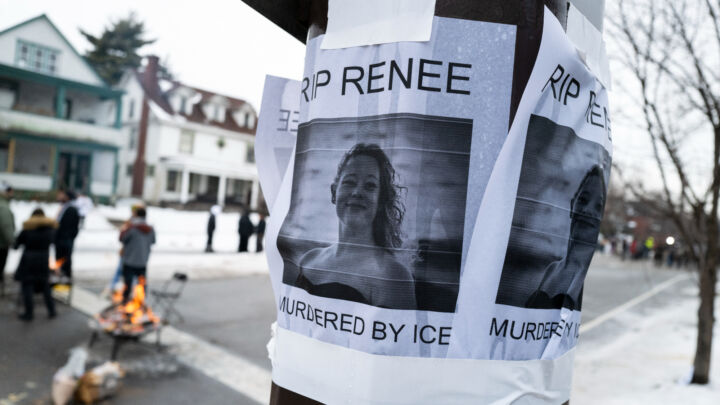Three cheers for Lindsay Shepherd

Want unlimited, ad-free access? Become a spiked supporter.
Imagine you’re a young postgraduate student doing some teaching. You have to teach the topic of gender-neutral pronouns, and you try to present both sides of the debate. To liven up your teaching, you show a video clip of two professors arguing about the topic. Now imagine that, as a result of this, you get pulled in by your faculty bosses and disciplined.
This really happened to Lindsay Shepherd, a postgraduate student at Wilfrid Laurier University in Ontario, Canada. Shepherd is now the centre of an media outcry after she used a video clip of Professor Jordan Peterson debating gender pronouns with fellow University of Toronto professor, Nicholas Matte.
Shepherd was criticised in a subsequent faculty meeting for presenting the clip in a neutral way, and not condemning Peterson’s opposition to gender-neutral terms before showing the video. Shepherd defended her approach by arguing that ‘in a university, all perspectives are valid’, to which a faculty member responded: ‘That’s not necessarily true.’ Shepherd was ordered to present all her future lesson plans to her supervisor, and was told that her lessons would be monitored by faculty members.
We know all this because the media-savvy Shepherd secretly taped her meeting with faculty bosses and made it public. Laurier has rightly been criticised for its censorship of opposing views, and for failing to uphold the core value of freedom of speech. By forcing tutors to push a biased point of view in their teaching, faculty bosses are undermining the basis of critical thinking which requires students to understand both sides of any issue.
Laurier has since apologised, and the vice-chancellor, Deborah MacLatchy, has made a public statement defending free speech and free expression. This came with a caveat, though: that it ‘is not a simple matter’ to uphold these principles while respecting important human rights and the ‘institutional values of diversity and inclusion’. MacLatchy’s qualification expresses the familiar trade-off approach to values: free speech versus diversity and inclusion.
But this is wrong. Free speech can and must be defended in order to promote equality, inclusion and diversity. These values only seem at odds because managers and academics have a diminished view of students. They think that students, and minority groups in particular, have vulnerable young minds and need protection from ideas. This is not true. Students at universities are adults, capable of thinking for themselves.
As well as making apologies, Laurier has launched an unnecessary independent enquiry into the Shepherd case, in what is clearly a pitiful attempt to save some face. They could save time and money by reminding all staff that defending free speech is simple – just do it with no ‘ifs’ and no ‘buts’.
Dennis Hayes is a professor of education at the University of Derby.
You’ve read 3 free articles this month.
Support spiked and get unlimited access.
Support spiked – £1 a month for 3 months
spiked is funded by readers like you. Only 0.1% of regular readers currently support us. If just 1% did, we could grow our team and step up the fight for free speech and democracy.
Become a spiked supporter and enjoy unlimited, ad-free access, bonus content and exclusive events – while helping to keep independent journalism alive.
———————————————————————————————————————————–
Exclusive January offer: join today for £1 a month for 3 months. Then £5 a month, cancel anytime.
———————————————————————————————————————————–
Monthly support makes the biggest difference. Thank you.









Comments
Want to join the conversation?
Only spiked supporters and patrons, who donate regularly to us, can comment on our articles.